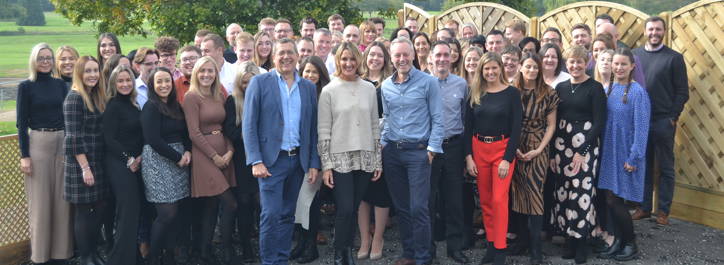Best Employers' top tips to make remote working a long-term success
Best Employers Eastern Region exists so businesses can share knowledge, inspire and learn from one another, with a focus on employee engagement. It's shown time and again that companies with motivated, engaged staff are more successful and sustainable than their peers - but just as there has never been a tougher time for organisations to look after people, there has never been a greater need for it.
"This crisis has demonstrated that there are some exceptional values-based leaders across our region that are leading with care, compassion and commercialism," says Lynn Walters of recruitment specialists Pure, co-founder of Best Employers. "These are the organisations that will come out of this stronger, more resilient with a strong reputation. They're the ones we will enjoy doing business with in the future."
It seems likely that an element of remote working is going to be a feature of working life for some time to come. Here are 12 key action points that Best Employers have learnt about making it successful and sustainable.
1 Open communication
Keep communication transparent. Deliver regular updates, remaining honest about the positives and the challenges, sharing hope about what can be done while keeping things realistic.
2 Use enough channels
Don't rely on one means of communication: the bigger the company, the more important it is to use a variety of channels to reach every person. Consider posting videos for key communications and using text messaging to get a large up-take. Use social media, if appropriate, to reinforce messaging.
Everyone has had to learn how to get the best out of video calls
3 Be consistent
Using consistent headings for emails or any searchable posts on internal websites (whether that's "Coronavirus", "Furlough" or simply "Update") means people not only quickly understand what a message is about when it goes out, but also makes it easy to find again if they want to go back to it.
4 Follow-up with video calls
Emails and other bulletins can sometimes seem impersonal (and can be too easily misconstrued when emotions are running high, as is often the case in this crisis). Make sure managers follow-up important messages with their teams to provide reassurance and make sure everyone's clear on the key points.
5 Listen and be grateful
It's important for managers to check in regularly with their people, taking time to listen to and respond to any concerns. Showing appreciation makes staff feel valued and motivated.
6 MAKE IT PERSONAL
Conversations need to be about the individual, not purely about the work: it's impossible to look after the person if you only pay attention to the task. Adjust the level of contact to suit people - extroverts may need more regular contact than introverts.
7 Get the tech right
Everyone who's been working remotely should be up to speed with their technology. If anyone is still struggling, establish why and remedy with the appropriate training or upgraded equipment.
8 Look at the environment
Effective home working is not just about the right IT package, laptop and training. People are more productive when they have a suitable place to work - possibly with appropriate desks and chairs. Assess whether you can provide things to help them set-up a suitable work environment.
9 Agree video-meeting etiquette
Make sure everyone knows how you want video meetings to run. Common approaches include muting when not talking, raising hands before being invited to speak, and using chat functions to raise questions.
10 Keep video meetings on point... up to a point
Don't make video meetings all about work. A little general conversation helps teams come together and stay positive. But whoever is running the meeting still needs to make sure everyone is heard, that the agenda is followed and that an outcome is reached - within a fair timeframe.
11 Understand flexibility
Try to accommodate remote workers who don't keep regular nine-to-five hours (especially if home-schooling children). They may take longer breaks during the middle of the day, making the time up with early starts or late finishes, and still be productive.
12 Focus on wellbeing
Check staff are looking after themselves. For remote working to be sustainable, flexible working must not become overworking. People need to take breaks, do exercise and limit overall working time to what it would normally be.



